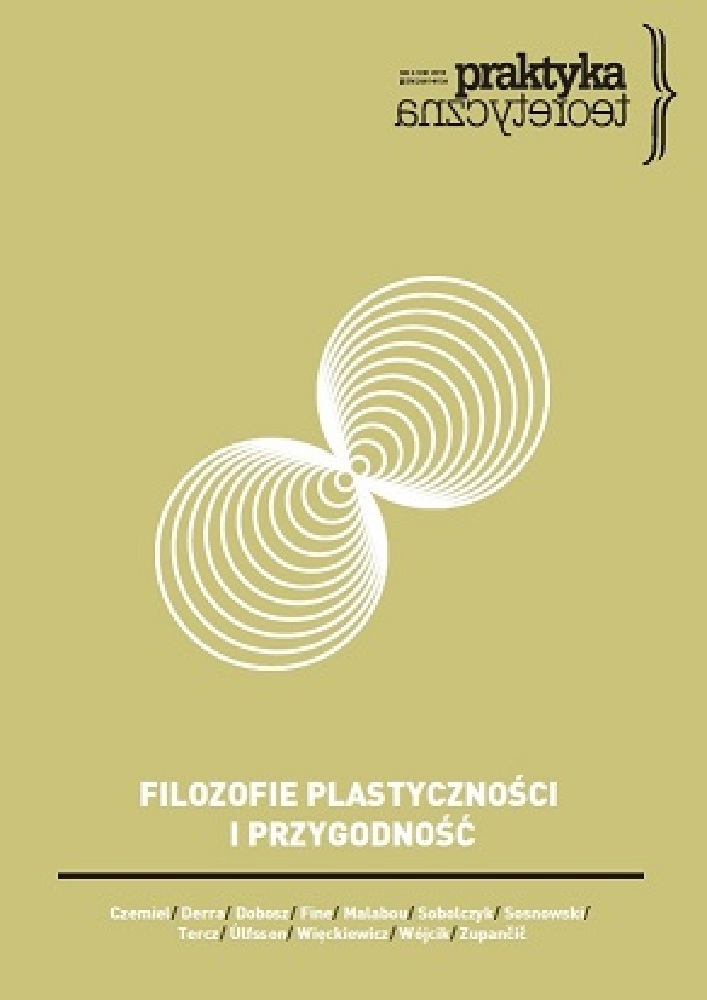Abstrakt
Przedmowa tłumaczki do artykułu Cordeli Fine „Wyjaśniamy czy utrzymujemy status quo? Teorie o „głęboko zakorzenionych" różnicach płciowych jako samospełniająca się przepowiednia".Bibliografia
Barad, Karen. 1996. „Meeting the universe halfway: realism and social constructivism without contradiction”. W Feminism, Science and the Philosophy of Science, red. L. H. Nelson I J. Nelson. London: Kluwer.
Fine Cordelia. 2012. „Explaining, or Sustaining, the Status Quo? The Potentially Self-Fulfilling Effects of »Hardwired« Accounts of Sex Differences”. Neuroethics 5: 285–294.
Fine, Cordelia. 2007. „Will Working Mothers‟ Brains Explode? The Popular New Genre of Neurosexism”. Neuroethics 1.1: 69–72.
Fine, Cordelia. 2013. „Is there neurosexism in functional neuroimaging investigations on sex differences?” Neuroethics 6: 369–409.
Hoffman Ginger A., Bluhm R. 2016. „Neurosexism and Neurofeminism”. Philosophy Compass 11/11: 716–729.
Kaiser, Anelis. 2012. „Re-conceptualizing »Sex« and »Gender« in the human brain”. Zeitschrift für Psychologie 220: 130–136.
Rose Nikolas i Joelle M. Abi-Rached. 2013. Neuro: The New Brain Sciences and the Management of the Mind. Princeton: Princeton University Press.
Schmitz Sigrid, Höppner Grit. 2014. „Neurofeminism and Feminist Neurosciences: a Critical Review of Contemporary Brain Research”. Frontiers in Human Neuroscience vol. 8: 1–10.
Schmitz, Sigrid. 2012. „The neurotechnological cerebral subject: persistence of implicit and explicit gender norms in a network of change”. Neuroethics 5, 261–274.
Vidal, Catherine. 2012. „The Sexed Brain: Between Science and Ideology”. Neuroethics 5: 295–303.
Licencja
Autorzy:
„Praktyka Teoretyczna” jest pismem, które chce realizować idee wolnego dostępu do wiedzy i poszerzania domeny dobra wspólnego. Ma służyć rozwojowi nauki i krytycznej refleksji w Polsce i na świecie w imię idei wolnego dostępu do wiedzy (Open Access). Całe pismo jest udostępniane za darmo w Internecie na warunkach licencji CC-BY-NC-SA (Uznanie autorstwa-Użycie niekomercyjne-Na tych samych warunkach 4.0 Międzynarodowe) w wersji 4.0 (szczegółowe warunki: http://creativecommons.org/licenses/by-nc-sa/4.0/). Artykuły w nim zamieszczone mogą być dowolnie przechowywane, kopiowane, drukowane, rozpowszechniane i wykorzystywane do celów naukowo-dydaktycznych przy zachowaniu warunków licencji. Apelujemy tylko o uznanie autorstwa i podanie źródła w myśl przyjętych w środowisku naukowym standardów.
Nie ma natomiast możliwości komercyjnego wykorzystania zgromadzonych zasobów bez pisemnej zgody wydawcy. Dostęp do czasopisma nie może być dystrybuowany za opłatą czy w jakikolwiek inny sposób limitowany przez inne podmioty.
Autorzy tekstów przyjętych do publikacji w czasopiśmie „Praktyka Teoretyczna” są zobowiązani do wypełnienia, podpisania i odesłania na adres redakcji umowy o udzielenie nieodpłatnej licencji do utworów, z zobowiązaniem do udzielania sublicencji CC [PL.pdf, PL.doc, EN.pdf, EN.doc].
Zgodnie z umową, autorzy tekstów opublikowanych w czasopiśmie „Praktyka Teoretyczna” udzielają wydawcy czasopisma niewyłącznej i nieodpłatnej licencji oraz zezwalają na użycie sublicencji Creative Commons Uznanie autorstwa-Użycie niekomercyjne-Na tych samych warunkach 4.0 Międzynarodowe (CC-BY-NC-SA 4.0).
Autorzy zachowują prawa do dalszego, swobodnego rozporządzania utworem.
Autorzy nadsyłanych artykułów powinni upewnić się, czy wykorzystywane przez nich materiały nie są chronione prawami autorskimi na rzecz innych osób i ponoszą odpowiedzialność za ewentualne uchybienia w tym względzie.
